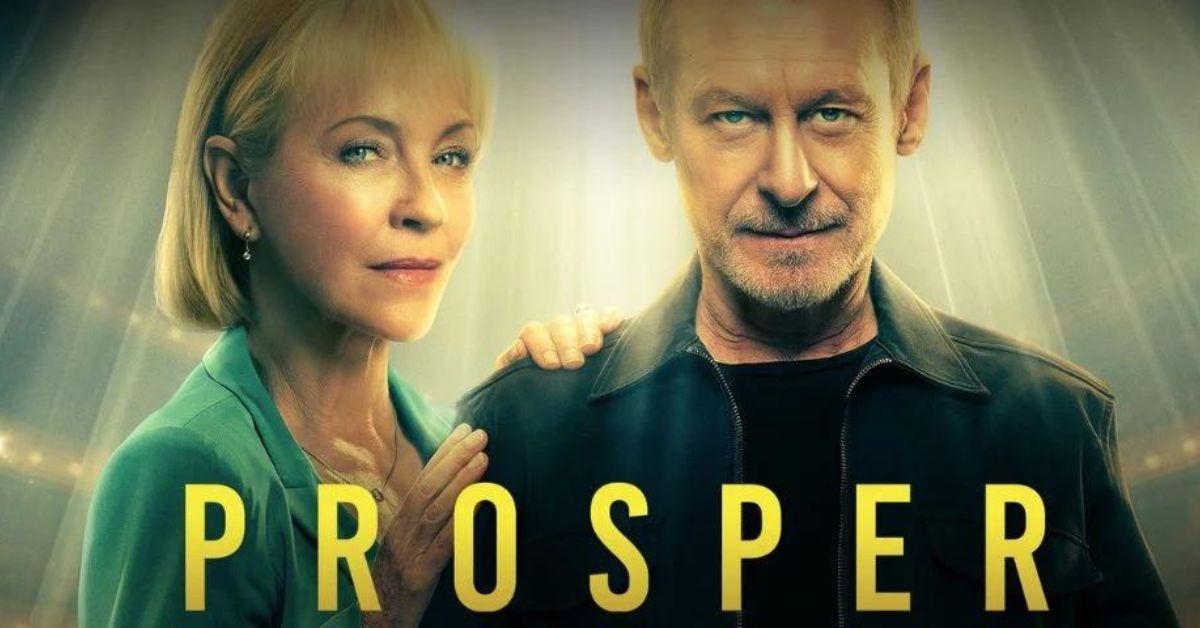By: Laura Bennett
Featuring unexplained rendezvous with women in hotel rooms, leaked bank statements and dubious run-ins between college students and pastoral staff, Prosper’s headline-making megachurch inspiration isn’t hard to trace, but Stan’s new series isn’t a church-bashing drama so much as an examination of the authenticity of faith.
Wealthy Pentecostal pastors Cal Quinn (Richard Roxburgh) and his wife Abi (Rebecca Gibney) lead Sydney-based megachurch UStar, whose newly announced expansion into the US causes tensions to rise between his ambitious family, with long-held secrets beginning to spill.
On the platform, Cal preaches an appealing gospel that promises fairytale endings, wealth, healing and miracles but by the end of the first episode a past drug addiction has resurfaced and he’s struggling to hear God.
“[The Quinns] have got secrets and problems and issues, and they feel terrible guilt about that,” Richard Roxburgh told The Sydney Morning Herald.
“But, unlike any other family, they have to be a morally flawless example to their own community and the world beyond. The pressure of that on these souls is incredible.”
It’s cynical to assume all preachers are hiding personal demons behind a charismatic veneer but Prosper isn’t far from the truth in suggesting not all parts of a Christian leader’s life are presented on stage.
When that’s for privacy’s sake it might be respected but when it conceals hypocrisy, the issue is far greater.
In evangelical circles especially, many congregants aren’t just following God and scripture but the person preaching about Him to them. The pastor’s “abundant life” reflects the benefits of living by Biblically aligned principles, so if they’re glamourous, popular and apparently perfect why wouldn’t you sign up to their message?
Prosper is set in a church, but the Quinns’ dilemma affects any aspirational brand: what do you do when the “cure-all” you’re publicly promoting isn’t delivering on the promise personally?
Unlike the Marie Kondo’s and Tony Robbins of the world, it’s not just an entrepreneurial empire at stake – it’s people’s beliefs about God, and your accountability to Him that’s on the line.
It’s unclear whether creators Matt Cameron (The Clearing, Secret City) and Jason Stephens (Lambs of God, Upright) have personal experience in megachurches, but they strike a measure of believability that invites Christian viewers in but doesn’t push “nonbelievers” out.
Prosper won’t spark the undoing of the megachurch model or ask questions of corporate-style religious institutions that haven’t already been levelled, but it does require us to consider how authentic faith can be when doubts, flaws and moral failings can’t be confessed.
We shouldn’t drop the high standards we expect of faith leaders, but “pretend perfection” isn’t helping anyone either.
Christians should also ask, is it the lifestyle of our pastors we should be aspiring to, or genuine Christlikeness?
In an ideal world, there shouldn’t be a difference between the two – your pastor’s lifestyle should be reflective of Christlikeness, shouldn’t it? – but in church settings where it’s easy to get caught up in personalities and platform, self-checking your focus is important.
Prosper is streaming on Stan now.
Article supplied with thanks to Hope Media.
Feature image: Publicity photo, supplied.
About the Author: Laura Bennett is a media professional, broadcaster and writer from Sydney, Australia.

